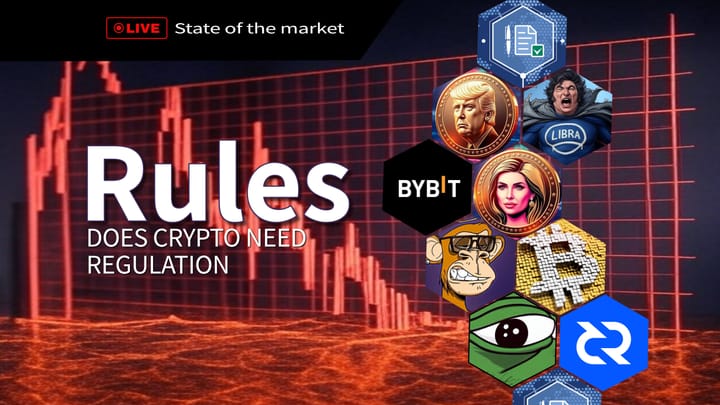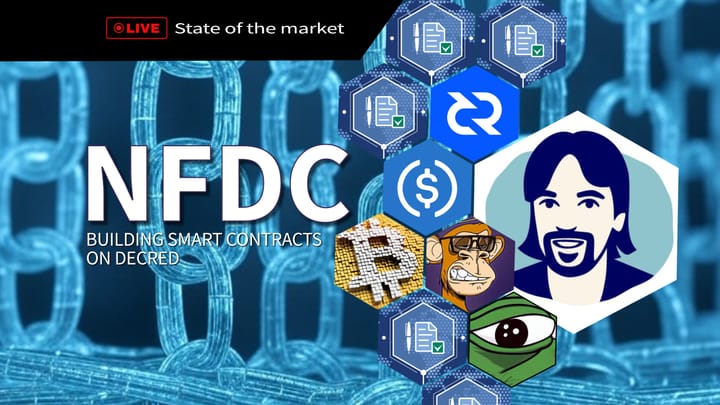Who's in charge of Decred?
Eduardo F. Lima III joins us to talk about his legal research paper “But Who is in Charge of Decred?”

LISTEN TO THE PODCAST:
Decred and the State Of The Market is brought to you by @Exitus and @DecredSociety and aims to look at current social, economic, and crypto news and how it relates to Decred. This time we are joined by Eduardo F. Lima III (@elima_iii) to talk about his latest legal research paper “But Who is in Charge of Decred?”
LIVE STREAM AGENDA:
Eduardo is a long standing member of the Decred community and started contributing back in 2020 With the staked podcast and then took over the hugely popular Decred in Depth podcast.
To start, it would be great to hear a little about his background and what he's currently working on for Decred?
What was the catalyst for choosing to study law, what category of law are you following and where are you hoping this pathway will lead to?
Your article examines the Responsible Financial Innovation Act (RFIA) and applies this in context to Decred. Can you describe this act and highlight some of the main impacts it’s likely to have on Decred and other cryptocurrencies.
The RFIA intends imposing disclosure obligations on crypto companies that raise funds through the sale of digital assets. How do you see this playing out in the wider space and how might this change the way crypto projects raise money in the future?
The RFIA also classifies DAO’s as “a business entity which is not a disregarded entity. In other words, a DAO that meets the statutory definition for Decentralized Autonomous Organization will be regarded as a business entity. How do you see this being applied to projects like Decred?
“Howey” I’ve heard this term quite a bit in the past few months. I wonder if you could explain how it works and how the test is applied to cryptocurrencies?
A virtual currency cannot be legal tender. A virtual currency cannot derive value from or be backed by an underlying asset. Decred satisfies these requirements because Decred is used primarily as a store of value and medium of exchange. From a legal perspective, what are the benefits and drawbacks of virtual currencies not being seen as legal tender?
Is Decred an ancillary asset consistent with section 41(b)(4) and therefore under the CFTC’s jurisdiction? What’s an ancillary asset and is Decred one?
What is Investment Contract Analysis, and how did you apply it to Decred?
My final question, so who’s legally in charge of Decred?
Community Questions
Enter your questions below before the show starts, or in the YouTube comments during the show.





Comments ()